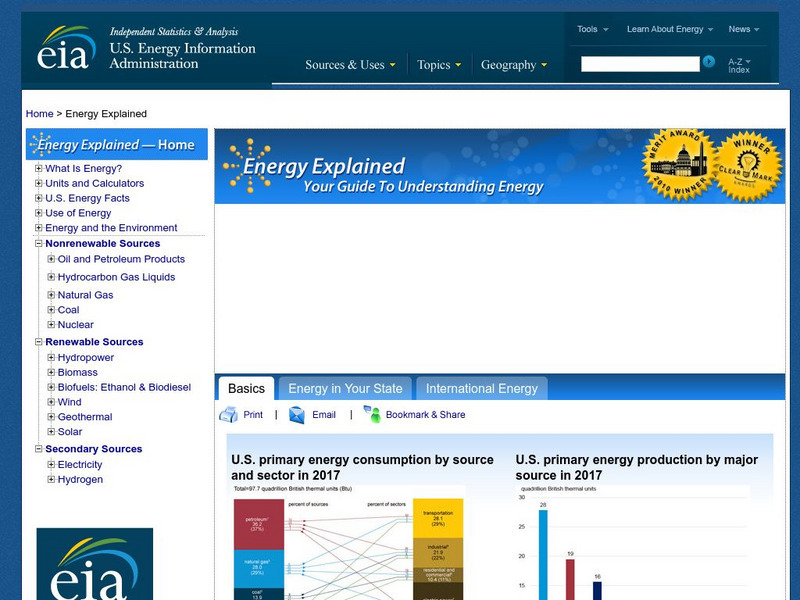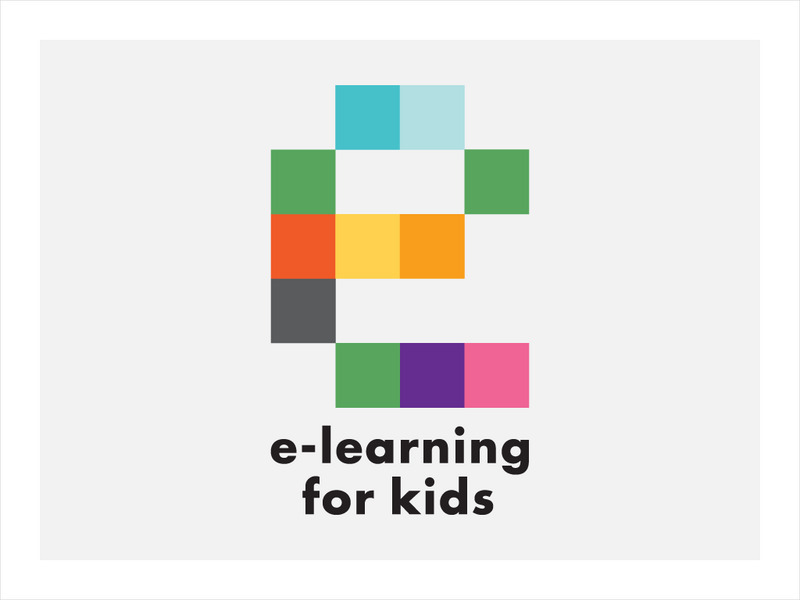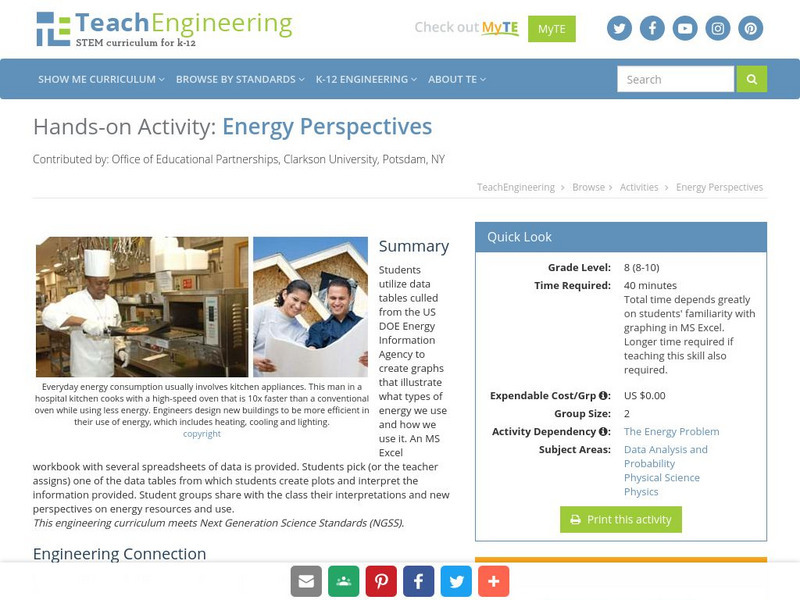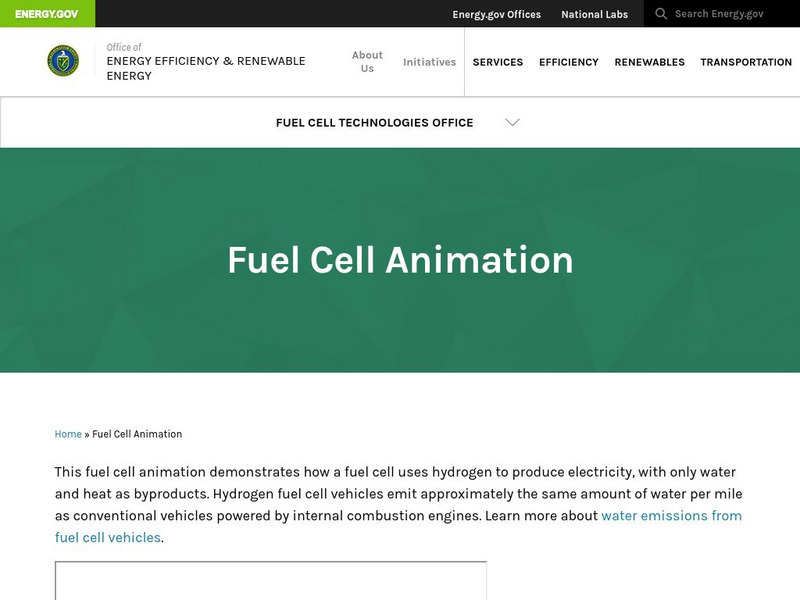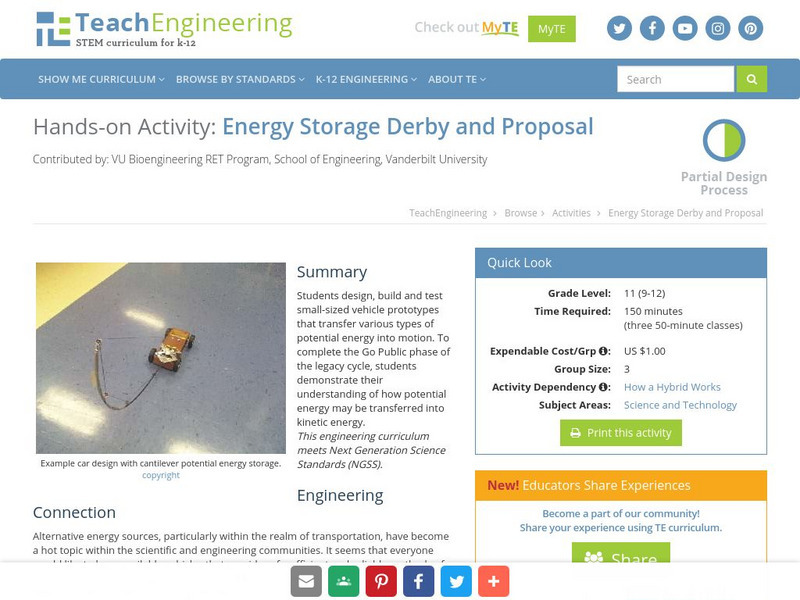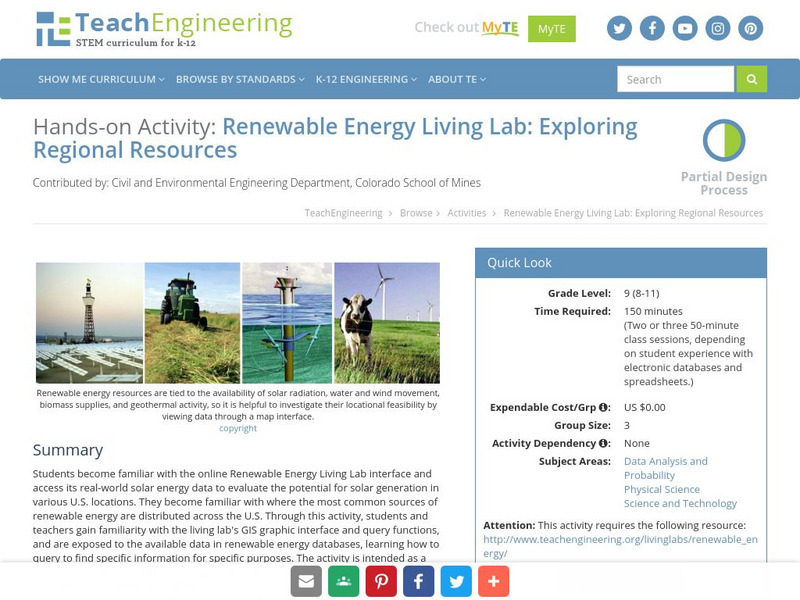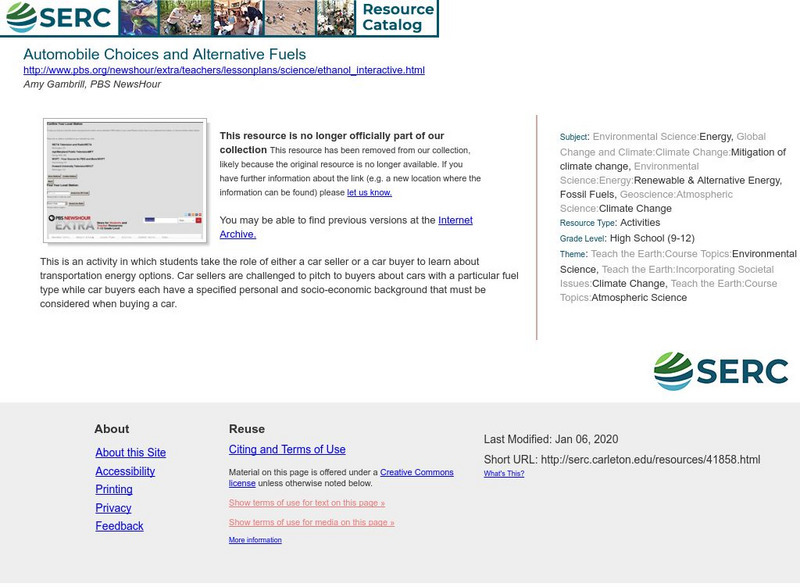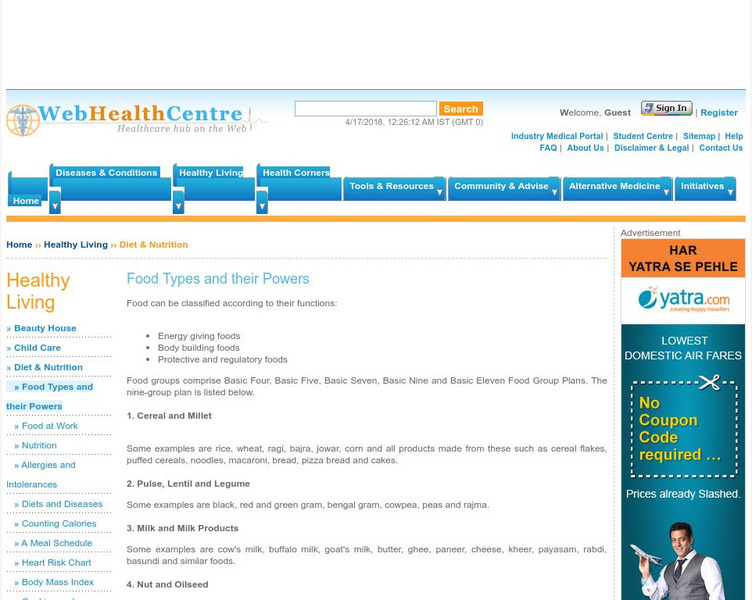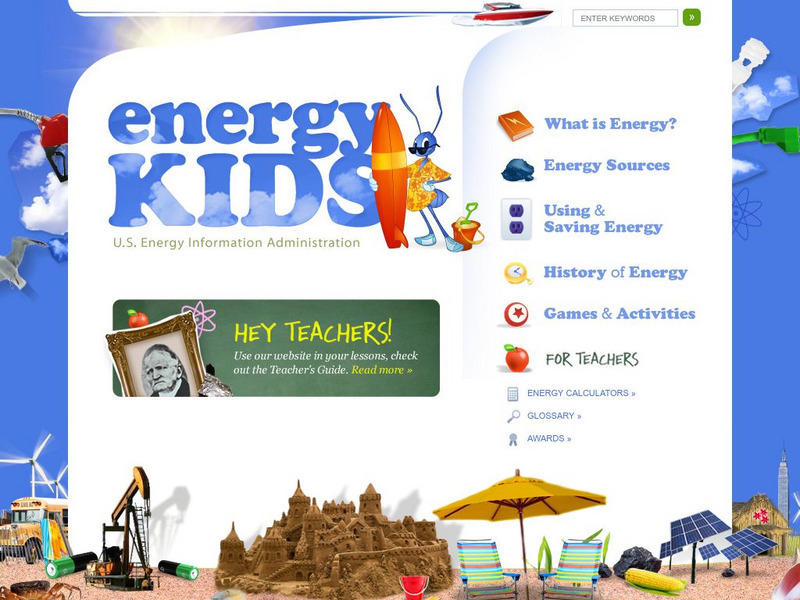Hi, what do you want to do?
Encyclopedia of Earth
Encyclopedia of Earth: Energy
A collection of articles on energy-related topics, including fossil fuels, conservation, alternative energy, and environmental issues.
TeachEngineering
Teach Engineering: Energy
Through nine lessons, students are introduced to a range of energy types--electrical, light, sound and thermal-as well as the renewable energy sources of wind, hydro (water) and solar power. Subjects range from understanding that the...
CK-12 Foundation
Ck 12: Earth Science: Introduction to Energy Resources
[Free Registration/Login may be required to access all resource tools.] Overview of the types of energy, and how it can be stored and released.
CK-12 Foundation
Ck 12: Earth Science: Introduction to Energy Resources
[Free Registration/Login may be required to access all resource tools.] Overview of the types of energy and how it can be stored and released.
CK-12 Foundation
Ck 12: Earth Science: Introduction to Energy Resources
[Free Registration/Login may be required to access all resource tools.] Overview of the types of energy, and how it can be stored and released.
US Energy Information Administration
U.s. Eia Energy Kids: Energy Explained
A comprehensive source of information about energy in all its forms. Each type of energy is explained, along with information about its environmental impact, supported with graphs, charts, and other data. There is a twenty-question quiz...
E-learning for Kids
E Learning for Kids: Science: Antilles: What Are the Different Forms of Energy?
Students will learn about the different types and sources of energy, including heat and light, electrical, potential, and kinetic energy.
PBS
Pbs Learning Media: Deciding Your City's Energy Future
Students learn about fossil fuels and renewable energy sources to help them decide which type of energy should be used to power a city's electric grid in the coming decades.
E-learning for Kids
E Learning for Kids: Science: Cayman Islands: What Is Energy Conservation?
Renewable and nonrenewable energy sources are described, different types of energy, and how energy can be conserved.
National Geographic
National Geographic: Encyclopedic Entry: Non Renewable Energy
A good primer on non-renewable energy sources. Covers the overall advantages and disadvantages, and discusses the different types and their pros and cons. Includes a slideshow with captions.
Other
Texas Comptroller of Public Accounts: The Energy Report: Nuclear Energy [Pdf]
Chapter 8 of a report on the energy industry in Texas. It examines nuclear energy, what it is, its history, and its uses. The nuclear power industry in Texas is described, including uranium mining, and types of nuclear reactors and how...
Science Education Resource Center at Carleton College
Serc: Alternative Energy Debate
With a learning team, students choose an alternative energy source such as solar, wind, biofuel, geothermal or other form and research the pros and cons of that energy type. The team then splits into debate teams and draws straws to...
TeachEngineering
Teach Engineering: Energy Perspectives
Students utilize data tables culled from the US DOE Energy Information Agency to create graphs that illustrate what types of energy we use and how we use it. An MS Excel workbook with several spreadsheets of data is provided. Students...
US Department of Energy
U.s. Department of Energy: Fuel Cell Technologies Program: Fuel Cell Animation
A series of animated illustrations show how a polymer electrolyte membrane fuel cell works. PEM fuel cells are the most common type used in flex-fuel vehicles.
TeachEngineering
Teach Engineering: Energy Storage Derby and Proposal
In Activity 5, as part of the Going Public step, students demonstrate their knowledge of how potential energy may be transferred into kinetic energy. Students design, build and test vehicle prototypes that transfer various types of...
Canada Science and Technology Museum
Canada Science and Technology Museum: Background Information for Energy
Energy! What do you know about it? Use this terrific site to find out everything about it through a series of Q&As. Educators will find useful lesson plans at the related Teacher's site.
US Department of Energy
U.s. Department of Energy: Energy Basics: Renewable Energy: Biomass
Find out about the renewable energy resource using biomass technologies. Learn about the three main types of biomass and how the stored energy from the sun is captured for use.
American Museum of Natural History
American Museum of Natural History: Ology: Rising Co2! What Can We Do?
With this resource, students learn how much fossil fuel emissions have increased since 1600 by exploring a graph showing carbon dioxide in our atmosphere. Then answer questions and read facts about climate change over the centuries....
Scholastic
Scholastic: Study Jams! Science: Energy, Light and Sound: Renewable Fuels
A slideshow and a short quiz on the different types of renewable energy sources.
TeachEngineering
Teach Engineering: Renewable Energy Living Lab
Students become familiar with the online Renewable Energy Living Lab interface and access its real-world solar energy data to evaluate the potential for solar generation in various U.S. locations. They become familiar with where the most...
TeachEngineering
Teach Engineering: My Moon Colony
Students are introduced to the futuristic concept of the moon as a place people can inhabit. They brainstorm what people would need to live on the moon and then design a fantastic Moon colony and decide how to power it. Student use the...
Science Education Resource Center at Carleton College
Serc: Automobile Choices and Alternative Fuels
This is an activity in which students take the role of either a car seller or a car buyer to learn about transportation energy options. Car sellers are challenged to pitch to buyers about cars with a particular fuel type while car buyers...
Other
Web Health Centre: Food Types and Their Powers
This website describes the nutritional values of different types of foods. Learn what types of foods are sources of carbohydrates, proteins, fats, vitamins, and minerals through a chart provided at the bottom of the page.
US Energy Information Administration
U.s. Eia Energy Kids
This extensive resource provides information on renewable energy, nonrenewable energy and energy conservation.










